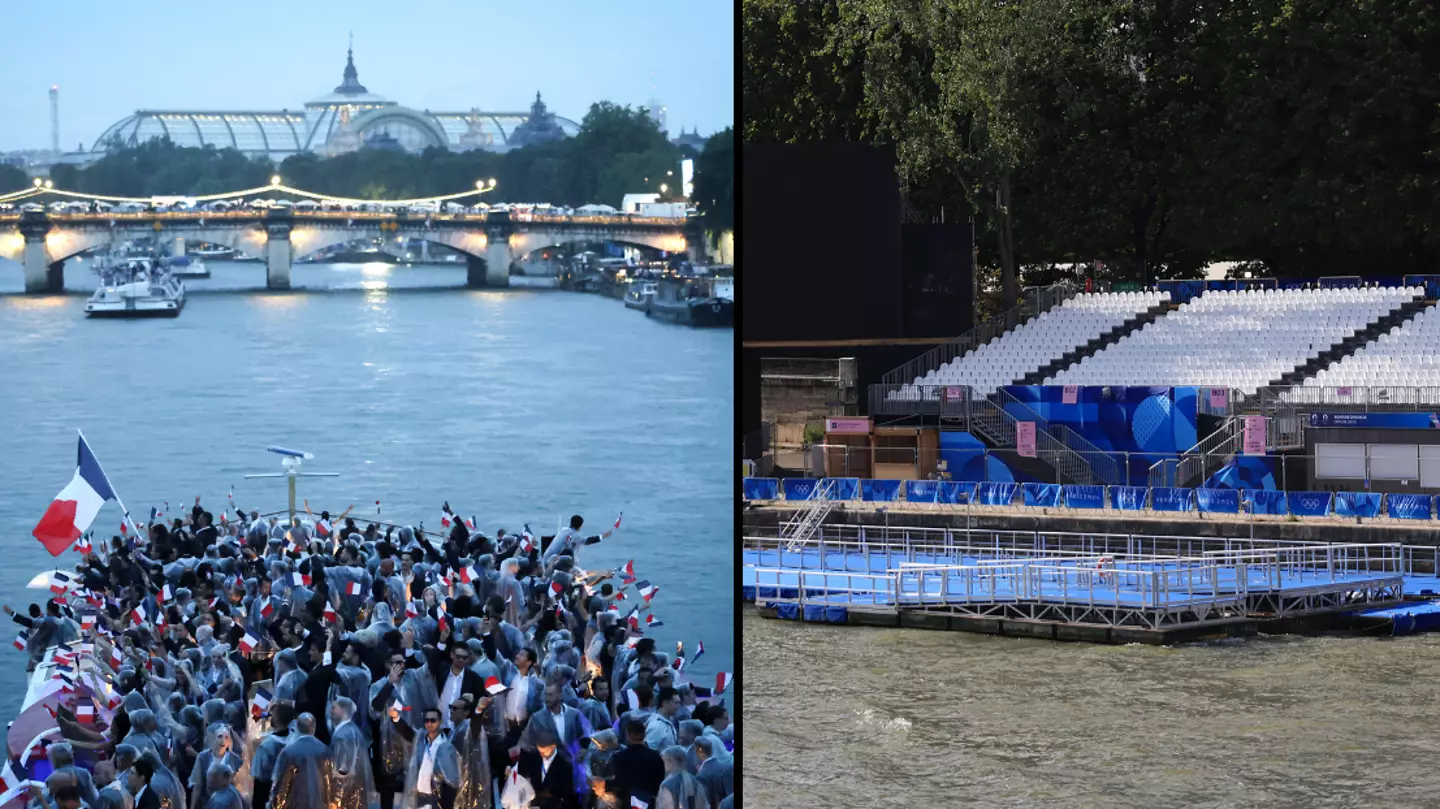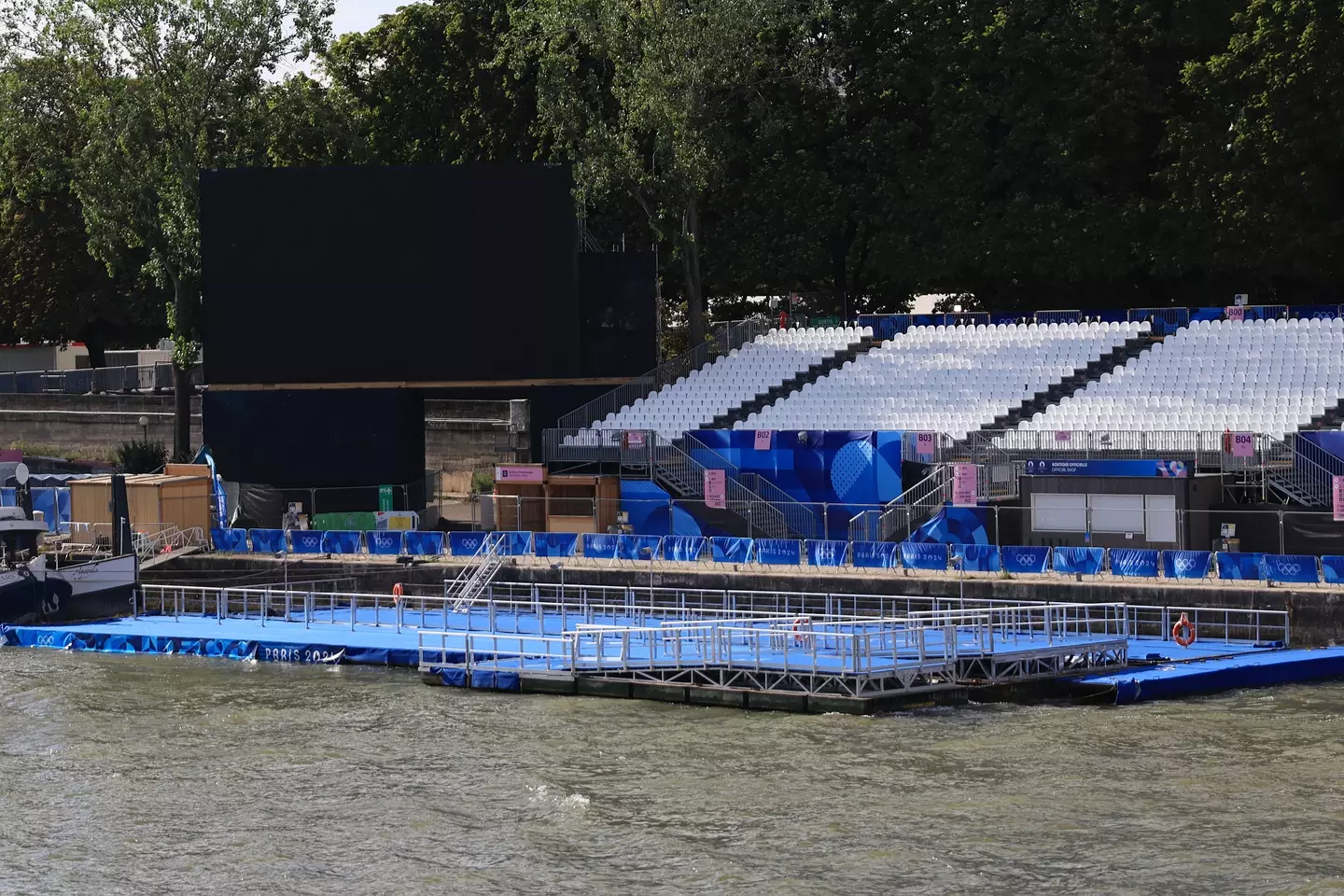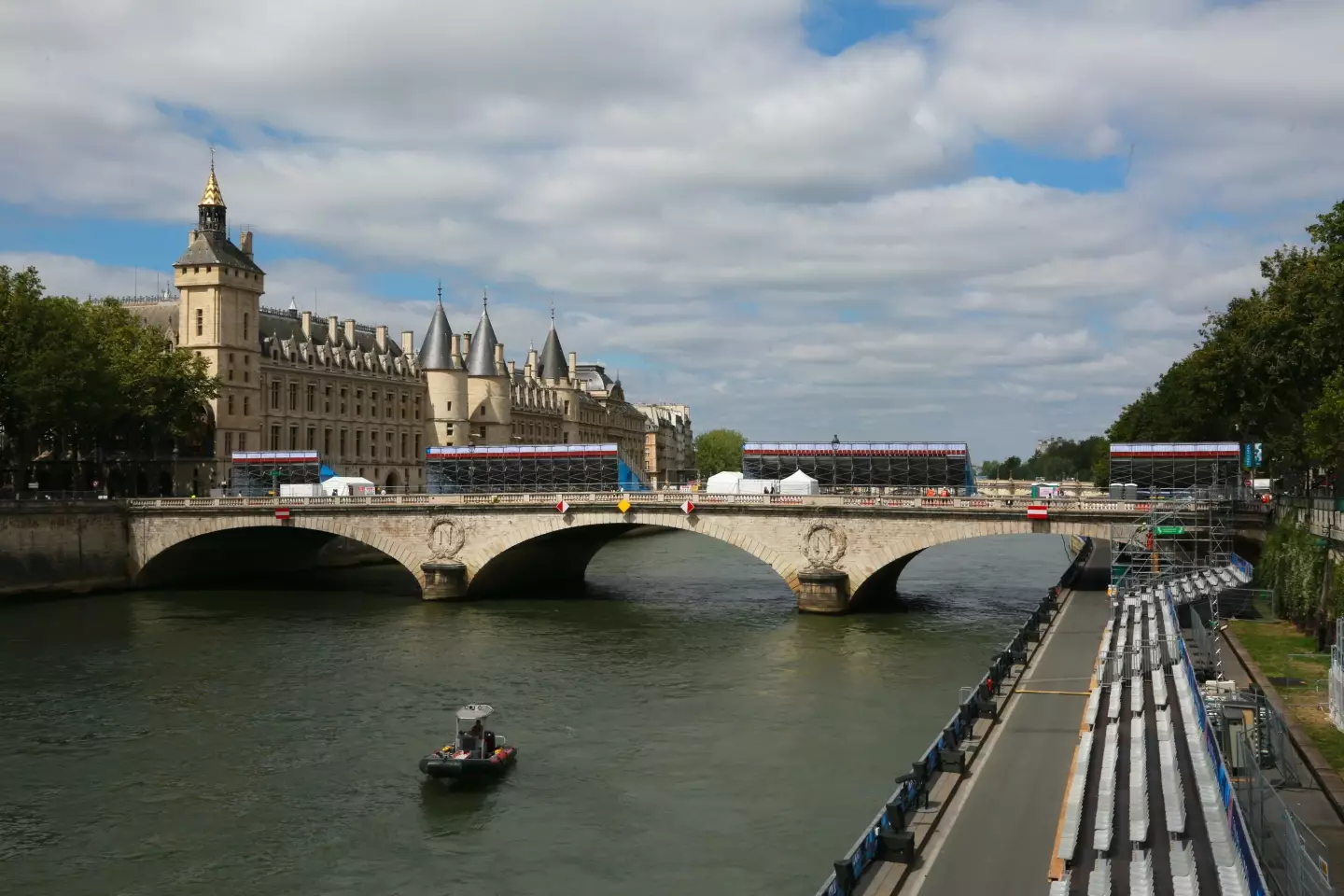
There is confusion and stress among Olympians after the triathlon was put in to doubt due to just how dirty the River Seine is. But contingency plans are being pencilled in for if conditions don't get better.
The French government had spent a whopping €1.4 billion (£1.18 billion) trying to turn the Seine in to a waterway that they hoped wouldn't make athletes incredibly sick, with ambitions to host the swimming leg of the triathlon in it as well as the marathon swimming event.
What's the problem?
Problems with the Seine all come down to what it was previously used for. Historically people used to throw raw sewage in to it for 50 long years, and it was illegal to swim in the river from 1923 until now due to the issues with how polluted it became.
It saw the E. coli and enterococcus bacteria spread like wildfire, which if you catch can cause pretty awful problems to your health.
Advert
This morning (30 July), the men's triathlon was postponed for 24 hours due to the pollution levels.
Despite spending all that money to improve conditions in the Seine in hopes of making the Paris Games the 'greenest ever Olympics', athletes' health would be at risk if they went ahead with the swimming leg today.
World Triathlon said in a statement: "Following a meeting on water quality held on 30 July at 3.30am attended by Paris 2024, representatives of World Triathlon and their Technical and Medical Delegates, the International Olympic Committee, Météo France, the City of Paris and the Prefecture of the Île-de-France Region involved in carrying out water quality tests, decision has been made to postpone the men’s triathlon event which was due to be held on 30 July at 8am."

Is there a new plan in place?
As it stands, the event has been pushed back 24 hours to 10.45am on Wednesday (31 July), taking place after the women's event.
Advert
But neither are guaranteed, with World Triathlon stressing they are 'subject to the forthcoming water tests complying with the established World Triathlon thresholds for swimming'.
And if the water quality fails tomorrow? A final contingency day of 2 August has been pencilled in by organisers, with the health of athletes a 'priority'.
According to The Conversation, sending athletes in to the water when unsafe could see them 'suffer gastrointestinal symptoms, eye and skin infections and respiratory illnesses'.
"The risk to athletes is heightened by suppressed immune systems, which can result from intensive competition and training," wrote Jamie Wilks, PhD candidate in Sports Ecology, and Lois Mougin, PhD candidate in Exercise and Environmental Physiology at Loughborough University.

What happens if the river remains too dirty?
Olympic organisers have said a duathlon - just the cycling and running - is a 'last resort'. It is being thought about, though, and plans put in place in case conditions don't improve.
Advert
Wilks and Mougin wrote: "If E coli levels remain high until 2 August, the swimming leg will be cut from the three-sport race.
"The Vaires-sur-Marne, east of Paris, is hosting the rowing competitions at least provides an alternative venue to the Seine.
"Extreme weather threatens the water quality of the Seine and its ability to host a safe Olympic Games. Athletes, event organisers and team managers must cooperate to limit the health risk, uphold the integrity of this Olympic discipline and prevent a crap experience for competitors."
Team GB athlete Vicky Holland, who won bronze in the triathlon at the 2016 Games, told the BBC: "It is something that has been spoken about endlessly, the water quality issues we've had here in Paris. It's something we've known about for years, it's just not in the recent months.
"I do believe there had been a real attitude now, especially among the athletes and the British team that it will be alright on the day.
Advert
"Yes, there had been contingencies in place and we had planned that there might have to be a change, but I don't think anyone though it would happen, yet here we are."
Topics: Olympics, Health, Sport, Environment, Europe, World News